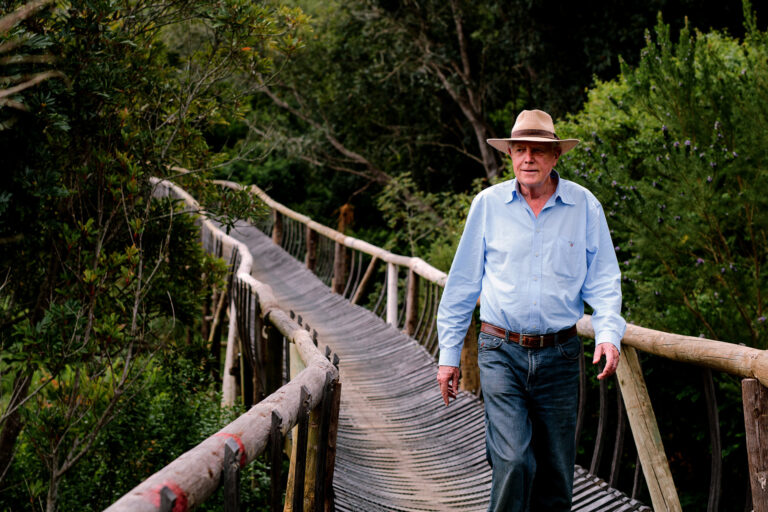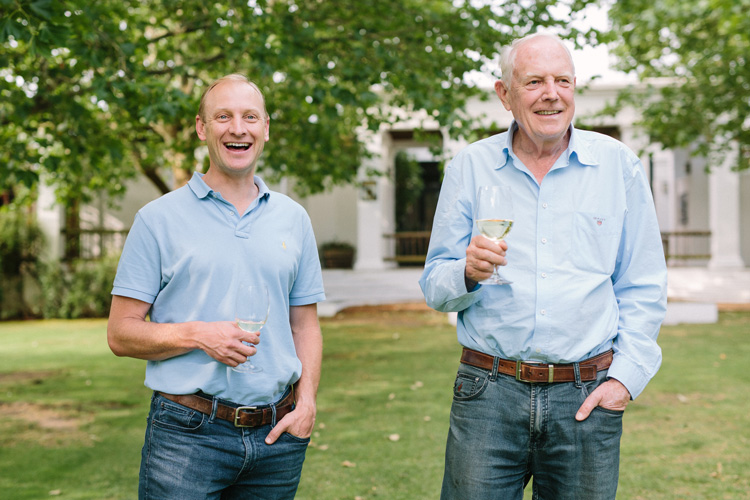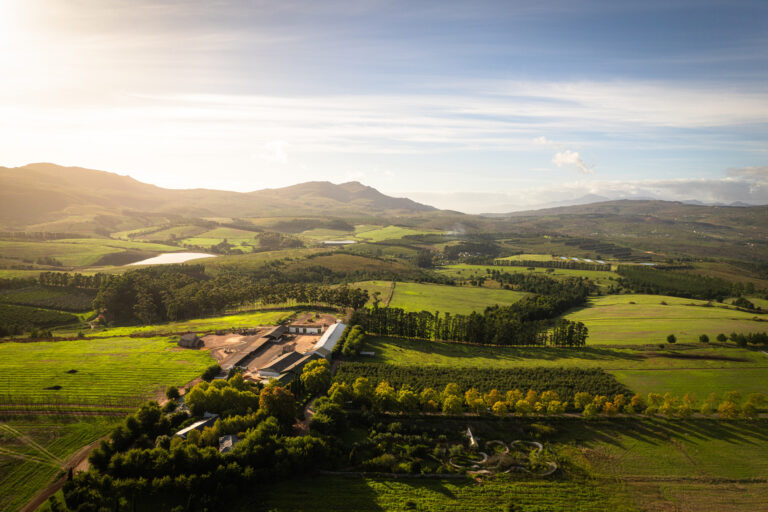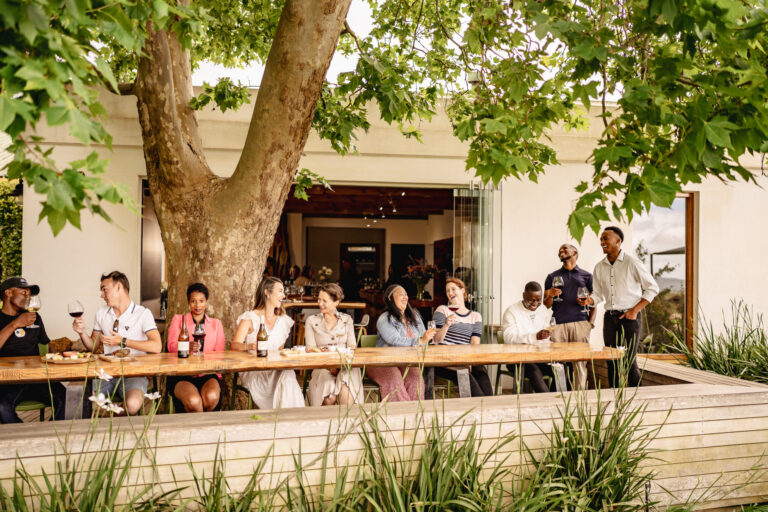Paul Cluver Wine Estate: A Cool-Climate Gem in the Elgin Valley
Nestled in the misty embrace of the Elgin Valley, Paul Cluver Wine Estate welcomed me with the scent of fynbos, the rustle of oak trees, and a glass of their crisp Sauvignon Blanc that seemed to capture the region’s cool-climate magic. As a wine blogger for CapeVineMaster.co.za, my visit to this family-owned estate, just an hour from Cape Town, was a journey into South Africa’s viticultural vanguard. Pioneers of Elgin’s wine industry, the Cluvers have crafted a legacy of excellence since their first vintage in 1987, blending innovation, sustainability, and a deep connection to the land. From their storied history to their elegant wines and a tasting room experience that feels like a warm hug, Paul Cluver is a must-visit—though a few tweaks could make it even more unforgettable. Join me as I explore the estate’s past, its vines, its vintages, and the activities that make it a standout in the Western Cape.
A Legacy of Vision and Stewardship
The Paul Cluver story begins in 1896, when the Cluver family acquired the De Rust farm in Elgin, a region then known for apples and pears rather than grapes. It was Dr. Paul Cluver, a neurosurgeon with a passion for agriculture, who saw the potential for cool-climate viticulture in the 1980s. Inspired by Burgundian techniques and Elgin’s maritime climate—cooled by Atlantic breezes and cradled by the Kogelberg Mountains—he planted the valley’s first commercial vineyards in 1986. The first wines, released in 1987, marked the birth of Elgin as a wine region, with Paul Cluver leading the charge.
Today, the estate is managed by the fourth and fifth generations: Managing Director Paul Cluver III and his son, Paul Cluver IV, the winemaker, alongside siblings who oversee various aspects of the 2,000-hectare property. Only 120 hectares are under vine, with the rest preserved as a UNESCO World Heritage Site within the Kogelberg Biosphere Reserve. The Cluvers’ commitment to sustainability is profound—20% of the estate is dedicated to conservation, protecting fynbos, leopards, and baboons, while initiatives like alien vegetation clearing and solar power reflect their eco-conscious ethos. Their Fairtrade certification and community projects, such as the Thandi empowerment initiative, underscore a legacy of social responsibility. My only wish? More signage or a guided eco-tour to highlight these efforts, as the conservation story felt underplayed during my visit.
Vineyards and Varieties: Cool-Climate Mastery
Paul Cluver’s vineyards thrive in Elgin’s unique terroir: high-altitude slopes (200–400m above sea level), sandstone and shale soils, and a cool, maritime climate with 1,000mm of annual rainfall. This combination yields grapes with intense flavor and balanced acidity, ideal for elegant whites and refined reds. The estate’s viticultural precision, guided by Andries Burger, ensures low yields (7–8 tons/ha) for concentrated fruit, with hand-harvesting and minimal intervention in the cellar.
The key grape varieties include:
- Chardonnay: The estate’s flagship, known for Burgundian elegance.
- Pinot Noir: A star performer, with silky tannins and red fruit.
- Sauvignon Blanc: Crisp and vibrant, a cool-climate classic.
- Riesling: Noble and aromatic, ranging from dry to noble late harvest.
- Gewürztraminer: Lush and spicy, a niche offering.
- Cabernet Sauvignon, Merlot, Cabernet Franc: Small plantings for blends like the Seven Flags range.
These cultivars, planted across 12 soil types, benefit from Elgin’s long ripening season, producing wines with finesse and aging potential. The estate’s focus on Chardonnay and Pinot Noir, which dominate 80% of plantings, reflects its Burgundian inspiration, while Riesling and Gewürztraminer add diversity.
The Wines: Elegance in Every Sip
Paul Cluver’s portfolio, crafted by winemaker Anneke Potgieter under Paul Cluver IV’s direction, is a testament to Elgin’s cool-climate prowess. The wines, certified by the Elgin Wine Growers for authenticity, span three ranges: Village (everyday), Estate (premium), and Seven Flags (flagship). Here’s what I tasted:
- Village Sauvignon Blanc 2024: Zesty with green apple, citrus, and flinty minerality. Perfectly crisp, though it could use a touch more complexity to rival top Sauvignon Blancs.
- Estate Chardonnay 2023: Creamy yet fresh, with lemon curd, almond, and subtle oak. A Burgundian beauty, though the oak slightly overshadows the fruit in youth.
- Seven Flags Chardonnay 2021: World-class with intense citrus, brioche, and a mineral backbone. It’s a masterpiece but demands cellaring for full expression.
- Village Pinot Noir 2023: Bright cherry and earthy notes with soft tannins. Approachable and charming, but lacks the depth of the Estate range.
- Estate Pinot Noir 2022: Silky with red berries, spice, and a long finish. Exceptional, though a bit pricier than peers.
- Seven Flags Pinot Noir 2020: A triumph of elegance, with violets, black cherry, and fine tannins. Worth every rand, but limited availability is a frustration.
- Riesling Noble Late Harvest 2023: Luscious with honey, apricot, and balanced acidity. Divine with dessert, though its sweetness may overwhelm some palates.
- Gewürztraminer 2024: Aromatic with lychee and rose petals. Delightful but niche, best as an aperitif.
Priced from R120 (Village) to R600 (Seven Flags), the wines offer value for their quality, with the Estate and Seven Flags ranges earning global accolades, including Decanter and Tim Atkin awards. My critique? The Village range, while solid, feels slightly generic compared to the Estate’s brilliance. A lighter oak touch on some Chardonnays would let Elgin’s terroir shine even brighter.
The Tasting Room: A Sensory Haven
The tasting room, nestled beside the estate’s amphitheater, is a highlight, offering a warm, modern space with valley views through floor-to-ceiling windows. Open daily (9am–5pm weekdays, 10am–4pm weekends), it’s family-friendly, with a kids’ play area and attentive staff led by manager Anri. The standard tasting (R100, waived with purchase) includes five wines, while the premium Seven Flags tasting (R150) showcases the estate’s best, paired with canapés like smoked salmon or biltong.
My Estate tasting was a joy, with Anri’s knowledge elevating each sip. The Pinot Noir, paired with a truffle-infused cheese bite, was a revelation, though the canapés were small, leaving me craving more substantial pairings. A chocolate or charcuterie option, like Ashton Winery’s, would enhance the experience. The room’s cozy vibe, with a fireplace for chilly Elgin days, was inviting, but it filled quickly, suggesting a need for more seating or a separate premium tasting area. The shop, stocked with wines, olive oil, and local crafts, tempted me to overspend, though limited stock of Seven Flags bottles was a minor letdown.
Activities to Savor at Paul Cluver
Paul Cluver is a destination, not just a winery, offering a range of activities that make it ideal for families, couples, and adventurers:
- Wine Tastings: Standard and premium tastings are the core draw, with bookings advised for groups over eight. The outdoor terrace, overlooking vineyards, is perfect for sunny days.
- The Bistro at Cluver: The on-site restaurant serves seasonal dishes, like pork belly with Riesling or vegetarian gnocchi, paired with estate wines. My lunch was flavorful, but service was slow during peak hours, suggesting a need for more staff.
- Mountain Biking and Hiking: Seven trails (3–12km) wind through the estate’s fynbos and forests, with permits (R50–R100) available at the tasting room. The views are stunning, but trail maps could be clearer for novices.
- Amphitheater Events: The open-air venue hosts summer concerts, from jazz to classical, with picnics and wine under the stars. Events are magical but weather-dependent, so check forecasts.
- Picnics and Picnics-to-Go: Pre-ordered picnic baskets (R350 for two) feature local cheeses, charcuterie, and bread, enjoyed in the rose garden or vineyards. The setting is idyllic, though more shaded spots would improve comfort.
- Kids’ Activities: A jungle gym and open spaces keep children entertained, making it a family favorite. A dedicated kids’ program, like a nature scavenger hunt, could add flair.
- Apple and Pear Heritage: The estate’s orchards, still producing fruit, offer a nod to Elgin’s history. Informal orchard walks are available, but a guided tour would deepen the experience.
The estate’s integration with the Kogelberg Biosphere, including sightings of Cape leopards, adds an eco-tourism edge, though I wished for more conservation-focused activities to engage visitors.
A Positive Yet Critical Review
Paul Cluver Wine Estate is a cool-climate jewel, blending Burgundian finesse with South African soul. The Seven Flags Chardonnay and Pinot Noir are world-class, and the Village range offers everyday elegance at accessible prices. The tasting room’s warmth, paired with The Bistro’s farm-to-table fare, creates a welcoming experience, while biking trails and amphitheater concerts make it a versatile destination. The Cluvers’ sustainability and community efforts, from Fairtrade to Thandi, set a gold standard for ethical winemaking.
However, there’s room for polish. The tasting room can feel crowded, and food pairings are underwhelming compared to competitors. The Village wines, while good, lack the Estate range’s wow factor, and oak use could be dialed back for fresher fruit expression. Slow restaurant service and limited premium wine stock were minor frustrations, as was the lack of guided historical or eco-tours to showcase the estate’s heritage and conservation work. Expanding these offerings would elevate Paul Cluver from exceptional to iconic.
Final Thoughts
My day at Paul Cluver was a love letter to Elgin’s terroir, leaving me with a bottle of Estate Pinot Noir, a full belly from The Bistro, and memories of misty vineyards. The estate’s blend of innovation, sustainability, and family warmth makes it a standout, whether you’re sipping Riesling by the fire or biking through fynbos. Just 10 minutes from Grabouw and an hour from Cape Town, Paul Cluver is a pilgrimage for wine lovers and adventurers alike. Book your tasting, pack a picnic, and prepare to fall for this Elgin gem. Here’s to Paul Cluver—where cool-climate wines meet heartfelt hospitality.
Plan your visit at Cluver.com and join CapeVineMaster.co.za’s monthly tastings for more wine adventures!








